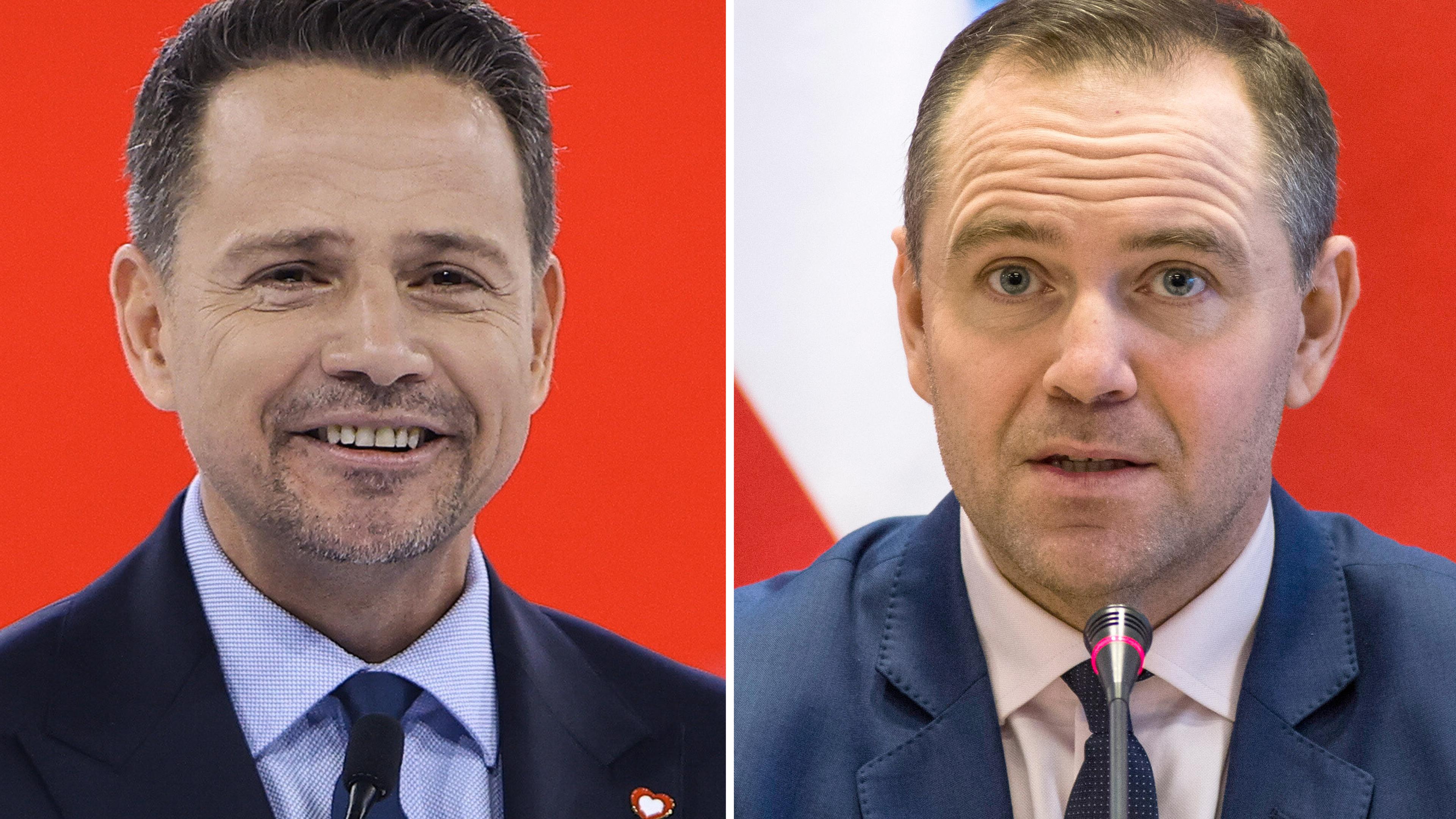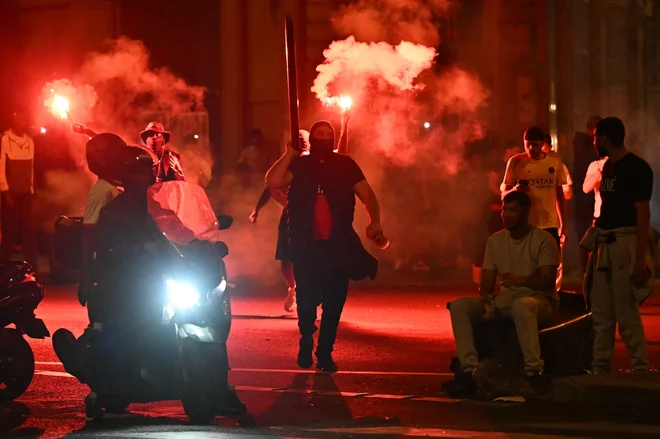In order to handle more criminal cases itself without a judge, chamber mort and mugs but will not be thinny
:format(webp)/s3/static.nrc.nl/images/gn4/stripped/data129948296-54ae98.jpg)
The hesitations in the Lower House about the decision of the Public Prosecution Service to take more criminal cases itself-through the imposition of community service sentences and fines-was perhaps the best expressed last week by MP Esmah Lahlah (GroenLinks-Pvda). Judiciary is « no production process » and the hidden criminal justice chain is « no traffic jam that you solve with an extra lane for the Public Prosecution Service, » said Lahlah.
The Member of Parliament said it during the parliamentary debate about the decision of the OM to handle almost all criminal cases where a maximum prison sentence of six years is on in the near future. Suspects will be summoned less often for the criminal court and will receive a criminal decision.
Invest in what is really needed: more judges, more legal aid and more humanity at the front of the chain
After reporting in NRC In February about the confidential, new internal ‘Instruction Intensification Penaly Decree’, it turned out that judges – who did not know the instruction – have great difficulty with this decision. Henk Naves, chairman of the Council for the Judiciary, spoke of a « fundamental change of course » of the OM. During one round table discussion In the Lower House, Naves complained last month about « undermining the position of the judge ». According to Naves, it seems « that we are on our way to a situation in which short -term imprisonment is no longer executed. »
MPs share those worries. « Many criminal cases will be kept away from the judge, » fears Jesse Six Dijkstra (NSC). According to him, the criminal court is ‘sidelined’. Ismail El Abassi (Think) warns of a sloping surface. « What once started as an exception for light offenses becomes a structural way out for a failing system, where convenience becomes more important than finding truth and efficiency it wins of care. »
Read also
Judges want an emergency meeting on change of course in which the OM more often imposes punishment themselves
Busy
The largest government party, the PVV, is also against the fact that the public prosecutor now on acts more often as a prosecutor and the judge. More penal decisions undermine confidence in the rule of law, according to PVV member Emiel van Dijk. « What should citizens think of it when they see that criminals and other rigs are no longer turning into the container, but getting away with a community service of a maximum of 180 hours of hoeing? »
Lahlah called on her colleagues to « invest in what is really needed, namely more judges, more legal aid and more humanity at the front of the chain, so that we judge not only faster, but above all more fairly and fairly ». She submitted a motion in which the government is requested « to invest in the case law structurally to relieve the criminal justice chain. » The motion did not get a majority on Tuesday.
The issue is not: prison sentence or a penalty decision. The issue is: punishment or impunity
Minister of Justice David van Weel (Justice and Security, VVD) will not grieve for that. He fully supports the policy of the OM with criminal cases with community service or fines. « Without the criminal decision, a significant part of crime would probably no longer be tackled, especially in view of the great pressure under which the criminal justice chain says. According to the OM, and therefore also in my eyes, the instrument contributes precisely to the punishment of criminals, » Van Weel said earlier in the Chamber.
The minister also does not need extra financial resources. « The acute solution for the chain is now not to throw a lot of money against it. » With more money it is also not possible to expand the number of police officers and the judiciary, says Van Weel. This is due to the shortage on the labor market and the training duration. « Certainly expanding the judiciary is not something you realized on a last afternoon, » says Van Weel.
/s3/static.nrc.nl/images/gn4/stripped/data130919045-8cf605.jpg|https://images.nrc.nl/DnoIWJyJUx7qn4MbE0A-y5cFRUQ=/1920x/filters:no_upscale()/s3/static.nrc.nl/images/gn4/stripped/data130919045-8cf605.jpg|https://images.nrc.nl/f9K452uTw_zBWHG0Efy5fjen2MI=/5760x/filters:no_upscale()/s3/static.nrc.nl/images/gn4/stripped/data130919045-8cf605.jpg)
Photo Peter Hilz / ANP / HH
Impunity
Many MPs support that view. According to MP Ingrid Michon-Derkzen (VVD), it is « an illusion » to think that judges can still consider all crime. « The issue is not: prison sentence or a penalty decision. The issue is: penalty decision or impunity. » Now, according to the VVD, the criminal is too often ‘the laughing third’. And the victim has it checking. Many parties are in favor of better arranging the legal protection of the victim – enforcing the right to speak and the right to compensation.
The VVD hopes that magistrates will work better together in tackling crime. The party has disturbed itself that prosecutors and judges in the past few weeks publicly fell out of the new criminal statement policy. That magistrate fighting was « no business card for the criminal justice chain, » said Michon.
The minister also shares that opinion. It is « absolutely more chic, » says Van Weel, to pull together then to take the size « in a live-out-out round table discussion. »
In that conversation, Naves called on the OM boss Rinus Otte to have ‘penetrating consultation as soon as possible’ about the new criminal statement policy. Three weeks later they have not yet settled the case. « The promise is to pay more attention to consultation around this theme in the near future, » says Naves.
Otte’s reaction is more economical. He says that there are already « regular discussions with the Council for the Judiciary in which the criminal statement policy is also discussed ».
Read also
Judges want an emergency meeting on change of course in which the OM more often imposes punishment themselves

/s3/static.nrc.nl/wp-content/uploads/2025/05/30201011/web-3005BIN_Kunststof2.jpg)
:format(jpeg):fill(f8f8f8,true)/s3/static.nrc.nl/taxonomy/061fd2f-Rusman%252C%2520Floor%25202023%2520%255BDoomernik%25202320%255D%25201280%2520WEB.png)
/s3/static.nrc.nl/images/gn4/stripped/data132596320-d64e36.jpg|https://images.nrc.nl/wG_FOkDeOlWoW0OEXWXynNKN4n8=/1920x/filters:no_upscale()/s3/static.nrc.nl/images/gn4/stripped/data132596320-d64e36.jpg|https://images.nrc.nl/8sbP7yiSpc_svV67NSQjUrooxls=/5760x/filters:no_upscale()/s3/static.nrc.nl/images/gn4/stripped/data132596320-d64e36.jpg)



